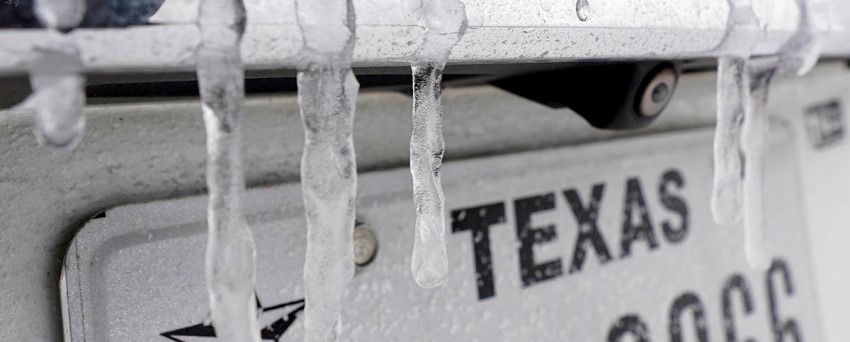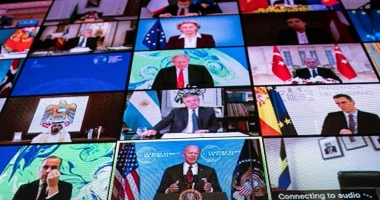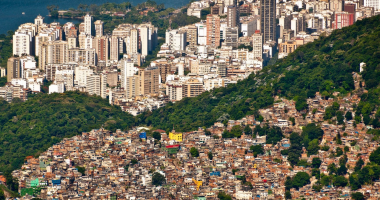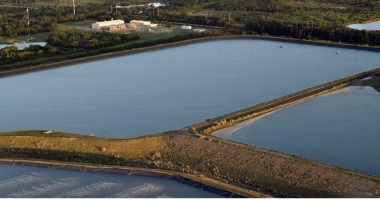Climate, Health and Equity Brief
Powerful storms, powerless grids and people in peril
February 22, 2021
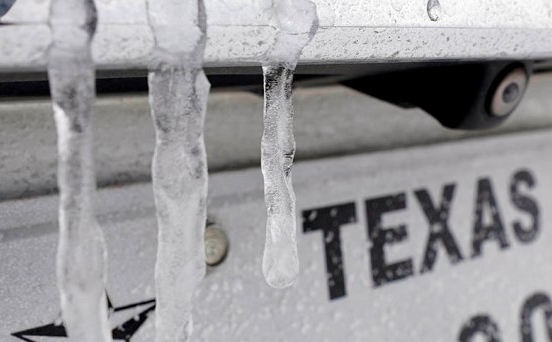
The Climate, Health & Equity Brief is GMMB’s take on the week’s news on the current impacts of climate change. If you haven’t subscribed yet, you can do so by clicking here.
Hot Topic: The perfect storm. A collision of extreme weather and a lack of climate change resilience had tragic outcomes this week as massive winter storms pummeled large swaths of the United States. In Texas, demand for heat increased sharply just as power plants across the state tripped offline due to extreme cold, leaving millions of people without power and bringing the state’s entire electric grid within “seconds or minutes” of catastrophic failure. At least 47 people have perished to date as a result of the storm and its aftermath, including some who froze to death in their own homes.
Associating climate change with this week’s freezing conditions may seem counterintuitive. Yet scientists warn that planetary warming is indeed the likely culprit, as fossil-fuel-driven emissions heat the Arctic at twice the rate of the rest of the planet, causing the jet stream to weaken and allowing frigid air from the polar vortex to reach further and further south.
Due in large part to industrial activity, Texas consumes more energy than any other state. It is also the only state that operates an independent, deregulated energy grid that is completely closed off from the rest of the country. This left them unable to import power from other states this week as temperatures plummeted and power supplies failed. The result was rolling blackouts, leaving millions of households without power just when they needed it most. Experts say that many low-income communities and communities of color were the first to be hit with outages, and could be among the last to be reconnected, leaving them without heat or power for days.
As the need for greater climate change mitigation and resilience grows more urgent, fortifying electric grids in the U.S.—and taking the multiple and even counterintuitive threats posed by climate change seriously—will increasingly become a matter of life and death.
— Matt & Traci, GMMB
Health
Scientists warn that record-setting winter storms and freezing temperatures, which have caused at least 30 deaths in Texas this week, are likely attributable to rapid warming in the Arctic that is pushing frigid weather systems further south than ever before. (The Washington Post, The Guardian)
A new study analyzing 18,000 couples in China over a one-year period found that those exposed to moderately increasing concentrations of particulate matter pollution had a 20 percent greater risk of infertility. (The Guardian)
Equity
While a number of affluent and commercial areas were exempt from power outages during unprecedented winter storms in Texas this week, low-income communities and communities of color disproportionately faced blackouts, leaving some without heat for days amid subzero temperatures. (The Guardian)
The Federal Energy Regulatory Commission (FERC) announced that it will create a senior-level position dedicated to ensuring that environmental justice and equity concerns are taken into account for major energy infrastructure projects. (E&E News)
As part of the Biden administration’s efforts to include tribal input in federal policy decisions, the U.S. Interior Department will begin formal consultations with Native American tribal leaders on climate change, racial justice, economic security and COVID-19 next month. (Reuters)
Politics & Economy
As unprecedented weather events become increasingly common due to climate change, electrical grids unaccustomed to extreme conditions across the U.S. are at growing risk of catastrophic failure. (The New York Times)
Treasury Secretary Janet Yellen has created a new climate hub within the department that will analyze ways to strengthen the U.S. financial system against climate risks and create tax policy incentives for reducing carbon emissions. (The Wall Street Journal)
After playing a visible and vocal role in supporting Joe Biden for president, youth climate activists are now pushing for a formal seat at the table to advise federal agencies and leaders on U.S. climate policy. (EcoWatch)
Wineries in Lebanon that have boosted the country’s economy for years are set to face major disruptions from warming temperatures, dwindling rainfall and other shifting weather patterns that are already challenging wine industries from California to Italy. (The Washington Post)
Action
Philanthropist Bill Gates has released a new book, How to Avoid a Climate Disaster, which lays out the challenges and opportunities ahead and shares concrete steps that individuals, governments and companies can take to get to net-zero emissions by 2050.
Auto giant Ford announced that it will invest $1 billion in an electric vehicle production facility in Germany to support a broader pledge to sell only zero-emission vehicles in Europe by 2030. (CNBC)
New Jersey Governor Phil Murphy (D) announced that he will release $100 million to electrify public transportation and expand electric vehicle charging infrastructure in the state. (The Philadelphia Inquirer)
Kicker
Need some weekend entertainment? Check out Meltdown, a new film exploring the effects of climate change around the world through the convergence of art and science.
“Climate change is one of the most urgent issues of our generation—one that demands greater investment in innovation to support the needs of everyone. Join me in calling on world leaders to adapt our world.”
-Bill Gates


